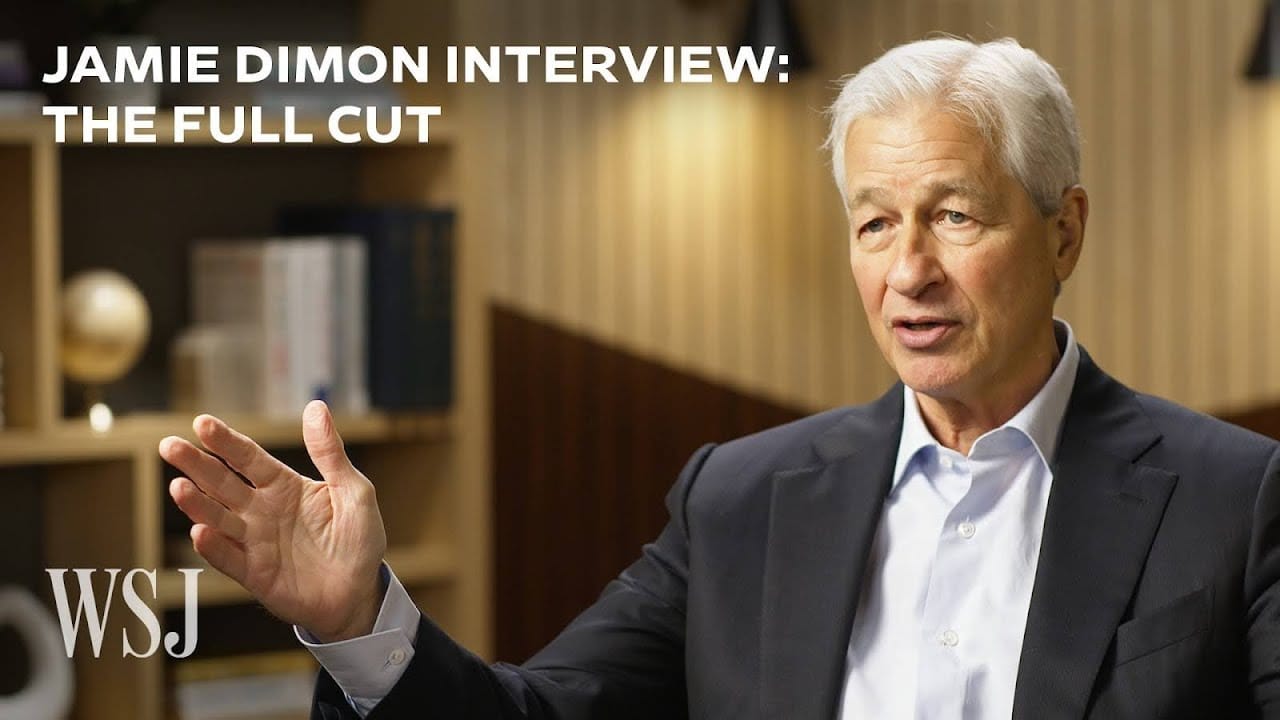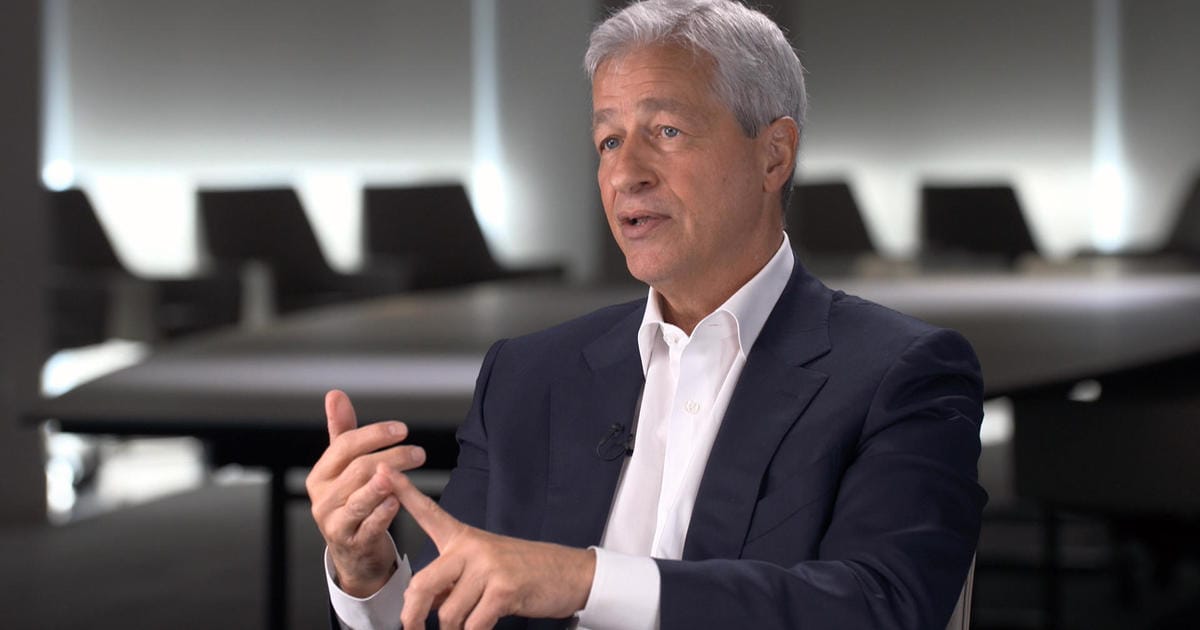Jamie Dimon's Insights on Geopolitical Risks and Economic Stability
Explore key insights from Jamie Dimon's WSJ interview on geopolitical tensions, U.S. economic health, AI in banking, and corporate responsibility. Essential reading for entrepreneurs navigating today's challenges.

In a recent, expansive interview with The Wall Street Journal, JPMorgan Chase's CEO, Jamie Dimon, shared his seasoned perspectives on various pressing topics shaping today's global and economic landscape. His insights are particularly relevant for entrepreneurs who must navigate these complex dynamics. Here, we delve into several key areas discussed by Dimon, offering actionable advice for business leaders looking to steer their ventures through these turbulent times.
Geopolitical Tensions and Economic Impact
Dimon highlighted the intense geopolitical conflicts, such as the war in Ukraine and tensions in the Middle East, stressing their potential to destabilize the Western democratic order and impact the global economy. He remarked, "The Ukraine war, the terrorist activities in Israel...the difficulties of our relations with China, that whole thing is challenging what we would call the free Democratic Western World."
Entrepreneurial Takeaway: Stay informed about international relations and consider diversifying your supply chains to mitigate risks from geopolitical instabilities. Developing contingency plans and maintaining flexible operational strategies are crucial for navigating these uncertainties.

U.S. Economic Health and Consumer Behavior
While the U.S. consumer appears robust, with low unemployment and significant financial reserves from pandemic-related fiscal policies, Dimon cautioned about underlying economic vulnerabilities, particularly inflation and budgetary deficits. He noted, "The consumer is in pretty good shape right now...but a lot was driven by just fiscal spending."
Entrepreneurial Takeaway: Understanding consumer confidence and spending patterns is vital for entrepreneurs. Adjust your business models to capitalize on current economic conditions without overextending. Keeping a close eye on economic indicators can help anticipate shifts in consumer behavior.
Inflation and Monetary Policy
Dimon expressed concerns about persistent inflation and the potential need for higher interest rates, which could complicate the economic recovery. He stated, "I'm a little more worried that it may not be so soft, and inflation may not go away like people expect."
Entrepreneurial Takeaway: Inflation affects all business aspects, from input costs to consumer pricing. To safeguard margins, entrepreneurs should focus on cost control and improve efficiencies. Also, consider the impact of interest rate changes on your business financing and investment decisions.

Artificial Intelligence in Banking
Discussing AI, Dimon predicted significant impacts on banking, highlighting its use in risk management, fraud detection, and enhancing customer experiences. He asserted, "AI is a real thing... It's used for risk, fraud, marketing... It'll create jobs, it'll eliminate some jobs, it'll make everyone more productive."
Entrepreneurial Takeaway: Leverage AI to streamline operations and enhance customer service. Staying abreast of technological advancements can provide competitive advantages. Consider investing in AI-driven tools that align with your business needs and customer expectations.
Financial Stability and Bank Crises
Reflecting on the lessons from past financial crises, Dimon emphasized the importance of preparedness and robust risk management. He advised, "Be prepared beforehand... and have a functioning risk Comm and stuff that all they do is just do more of it."
Entrepreneurial Takeaway: Maintain a solid financial buffer and an adaptable business plan. Regularly review your risk management strategies to handle unexpected financial pressures effectively. Collaboration with financial advisors or institutions can also provide additional support and guidance.
Corporate Responsibility and Social Issues
Dimon discussed JPMorgan Chase's role in addressing social issues and highlighting initiatives to improve economic opportunities in underserved communities. He stressed, "We're reaching out to disadvantaged communities... they generate business and help lift up society."
Entrepreneurial Takeaway: Social responsibility can drive business success. Engaging in community service and sustainable practices can enhance your brand's reputation and attract customers who value ethical business practices.
Conclusion
Jamie Dimon's insights provide a valuable framework for entrepreneurs aiming to thrive in a complex global environment. By understanding and integrating these insights into your business strategy, you can better prepare to face the economic and geopolitical challenges ahead. Staying informed, being adaptable, and maintaining a proactive stance are essential strategies for today's entrepreneurs.

About Jamie
Jamie Dimon, born on March 13, 1956, in New York City, is a towering figure in the world of finance, renowned for his astute business acumen and leadership skills. As the Chairman and CEO of JPMorgan Chase, one of the largest and most prestigious banking institutions globally, Dimon has steered the company through numerous challenges, securing its position as a leader in the financial sector.
Raised in a Greek-American family, Dimon's early exposure to the financial industry came from his father and grandfather, who were both stockbrokers. He pursued higher education at Tufts University, majoring in psychology and economics. After graduating summa cum laude, Dimon furthered his education at Harvard Business School, earning an MBA and graduating as a Baker Scholar, a distinction given to the top five percent of the class.
Dimon's professional career began at American Express, where he assisted the executive vice president. His real breakthrough came when he joined Sandy Weill, his mentor, in building Citigroup. However, Dimon was ousted from Citigroup after a highly publicized falling out with Weill in 1998.
In 2000, Dimon made a significant career move by becoming CEO of Bank One, the fifth-largest bank in the United States. Under his leadership, Bank One turned from an underperforming entity to a profitable enterprise. This turnaround caught the attention of JPMorgan Chase, leading to the acquisition of Bank One by JPMorgan Chase in 2004. Dimon was named CEO of the combined company in 2005 and subsequently Chairman in 2006.
Under Jamie Dimon’s leadership, JPMorgan Chase has become a behemoth in global banking, boasting significant profitability and resilience. Notably, under his watch, the bank navigated the financial turmoil 2008 with relative stability compared to its peers, mainly due to its conservative management practices and Dimon’s foresight in avoiding risky mortgage investments and other hazardous financial products.
Dimon’s tenure hasn’t been without controversy or challenges, including the “London Whale” trading scandal in 2012, which resulted in billions of dollars in losses for JPMorgan. However, his leadership has generally been characterized by a commitment to maintaining a solid capital base and focusing on long-term profitability over short-term gains.
Aside from his corporate responsibilities, Jamie Dimon is a vocal commentator on public policy and economic issues. He has advocated for policies that promote economic growth and stability, and he is outspoken about the need for comprehensive fiscal and tax reforms. He serves on several boards, including the Business Roundtable, and is a known figure in political circles, often called upon to advise on economic matters.
Despite facing health issues, including a battle with throat cancer in 2014 and emergency heart surgery in 2020, Dimon has shown resilience, continuing to lead with vigor and passion. His management style, marked by direct communication and a hands-on approach, has earned him respect and admiration in the global business community.
Jamie Dimon’s impact on JPMorgan Chase and the broader financial landscape is profound. His leadership philosophy, emphasizing accountability, integrity, and straightforwardness, continues influencing the banking industry and corporate America.


